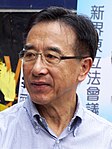| |||||||||||||||||||||||||||||||||||||||||||||||||||||||||||||||||||||||||||||||||||||||||||||||||||||||||||||||||||||||||||||||||||||||||||||
All 60 seats to the Legislative Council 31 seats needed for a majority | |||||||||||||||||||||||||||||||||||||||||||||||||||||||||||||||||||||||||||||||||||||||||||||||||||||||||||||||||||||||||||||||||||||||||||||
|---|---|---|---|---|---|---|---|---|---|---|---|---|---|---|---|---|---|---|---|---|---|---|---|---|---|---|---|---|---|---|---|---|---|---|---|---|---|---|---|---|---|---|---|---|---|---|---|---|---|---|---|---|---|---|---|---|---|---|---|---|---|---|---|---|---|---|---|---|---|---|---|---|---|---|---|---|---|---|---|---|---|---|---|---|---|---|---|---|---|---|---|---|---|---|---|---|---|---|---|---|---|---|---|---|---|---|---|---|---|---|---|---|---|---|---|---|---|---|---|---|---|---|---|---|---|---|---|---|---|---|---|---|---|---|---|---|---|---|---|---|---|
| Registered | 3,055,378 (GC) | ||||||||||||||||||||||||||||||||||||||||||||||||||||||||||||||||||||||||||||||||||||||||||||||||||||||||||||||||||||||||||||||||||||||||||||
| Turnout | 1,331,080 (43.57%) | ||||||||||||||||||||||||||||||||||||||||||||||||||||||||||||||||||||||||||||||||||||||||||||||||||||||||||||||||||||||||||||||||||||||||||||
| |||||||||||||||||||||||||||||||||||||||||||||||||||||||||||||||||||||||||||||||||||||||||||||||||||||||||||||||||||||||||||||||||||||||||||||
 Elected candidates by each constituency | |||||||||||||||||||||||||||||||||||||||||||||||||||||||||||||||||||||||||||||||||||||||||||||||||||||||||||||||||||||||||||||||||||||||||||||
| |||||||||||||||||||||||||||||||||||||||||||||||||||||||||||||||||||||||||||||||||||||||||||||||||||||||||||||||||||||||||||||||||||||||||||||
The 2000 Hong Kong Legislative Council election was held on 10 September 2000 for members of the 2nd Legislative Council (LegCo) of the Hong Kong Special Administrative Region (HKSAR). The election returned 24 members from directly elected geographical constituencies, 6 seats from the Election Committee constituency and 30 members from functional constituencies, of which 9 uncontested.
The election saw the decline in turnout rate from 53.29 percent in 1998 to 43.57 percent. The Democratic Party was able to maintain the largest party status in the legislature by retaining 12 seats, despite its vote share fell sharply by eight percent, if including Lau Chin-shek from the Hong Kong Confederation of Trade Unions (CTU) running in the same ticket with Democrat James To in Kowloon West, from 42 percent in 1998 to 34 percent in 2000.[1]
In contrast, the pro-Beijing rival Democratic Alliance for the Betterment of Hong Kong (DAB) raised its vote share over two years by five percent, to 29.6 percent if including Tang Siu-tong from the Hong Kong Progressive Alliance (HKPA). As a result, the DAB won 11 seats, a sharp increase of three seats from the previous election, making it the second largest political party in the legislature, despite an alleged corruption scandal involving its vice-chairman Cheng Kai-nam at the peak of the campaign.[1] Cheng did not take his office and a by-election in December was won by a pro-democracy independent Audrey Eu.
The pro-democracy camp won 21 seats in total, of which 16 of those returned from the directly elected geographical constituencies, one seat more than the previous election which secured the one-thirds vote to veto any government's proposal of any constitutional amendment. As of 2024, these were the last elections won by a party other than the Democratic Alliance for the Betterment and Progress of Hong Kong which began to dominate Hong Kong politics from 2004.
- ^ a b Poon, Kit (2007). The Political Future of Hong Kong: Democracy Within Communist China. Routledge. p. 72.








